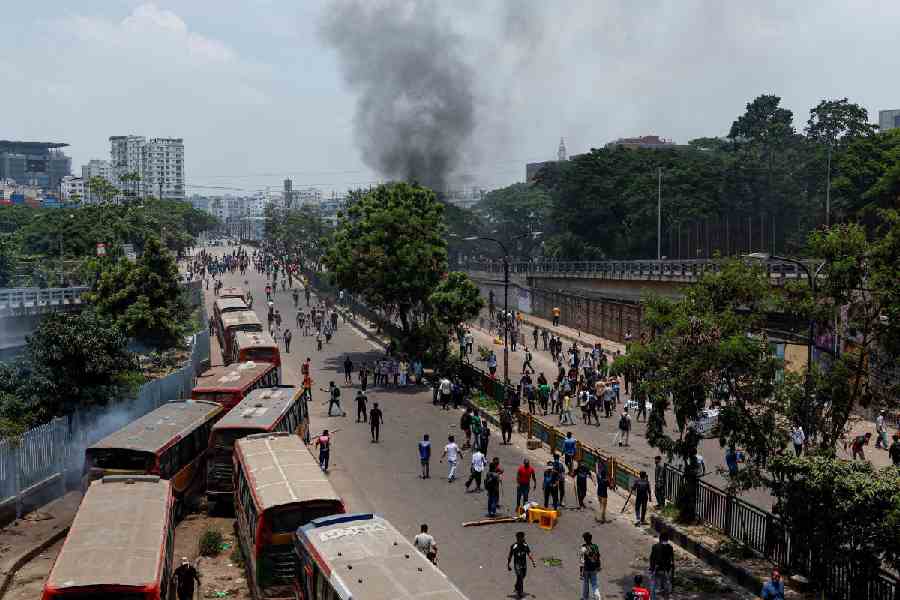Streets appeared calm in Bangladesh's capital on Monday, a day after the Supreme Court agreed to scrap most government job quotas that had angered student-led activists and led to deadly protests.
Late on Sunday, protesters gave Bangladesh's government 48 hours to meet a string of new demands, including a public apology from Prime Minister Sheikh Hasina for the violence, and the restoration of internet connections disrupted in the unrest.
But on Monday, most appeared to be obeying a curfew in cities that had seen regular demonstrations after a high court in June reinstated old quotas that reserved many state jobs for descendants of freedom fighters and other groups.
At least 147 people have died in the violence, according to information from hospitals, while a police spokesperson said at least three policemen were killed and more than 1,000 injured.
Dhaka police have arrested 516 people for involvement in "destructive attacks", spokesperson Faruq Hossain said.
A public holiday declared over the last two days was extended to Tuesday, according to a government notification.
"Normalcy will return within one or two days," Home Minister Asaduzzaman Khan told reporters.
Experts have blamed the unrest on stagnant job growth in the private sector and high rates of youth unemployment that have made government jobs, with their regular wage hikes and other privileges, more attractive.
Hasina, 76, who was sworn in for a fourth consecutive term this year, has been accused of authoritarianism, human rights violations, and crackdowns on free speech and dissent in the past - charges her government denies.
The recent clashes followed similar violent protests ahead of January's national elections by Hasina's opponents in response to what they called her authoritarian rule, and by garment workers demanding better pay amid high inflation.
On Monday, there were no reports of violence or protests across the country, officials said.
MOST QUOTAS SCRAPPED
Army tanks were seen stationed at several places in the streets of Dhaka, the capital, while armed security patrols directed the few motorists who ventured out.
The Supreme Court's Appellate Division on Sunday ruled in favour of an appeal from the government, overturned the lower court's decision and scrapped most of the quotas, directing that 93% of government jobs should be open to candidates on merit.
Hours after that ruling, the Anti-Discrimination Student Movement issued a statement demanding the government reopen campuses and end restrictions imposed as protests raged.
It also called for the resignation of some ministers and university officials and the dismissal of police officers deployed in the areas where students were killed.
"We are giving an ultimatum to the government to fulfil our eight-point demand within 48 hours," one of the Movement's leaders, Hasnat Abdullah, told reporters.
He did not say what would happen if the government did not meet the demands. The government did not immediately comment.
Thousands were injured in last week's protests as security forces fired tear gas, rubber bullets and sound grenades to scatter the demonstrators.
Protesters said some of their leaders were detained, including Nahid Islam, who told the media he was picked up by "20-30 people" claiming to be police early Sunday morning and taken to a room where he said he was tortured until he lost consciousness.
"When I regained consciousness I found myself lying on the streets," he said. Dhaka police denied detaining him.
Bangladesh's $416 billion economy had been one of the fastest-growing in the world for years, but has faced struggles after the COVID-19 pandemic.
Costly energy imports after the war in Ukraine shrank its dollar reserves, which fanned inflation and pushed the government to seek a bailout from the International Monetary Fund.











